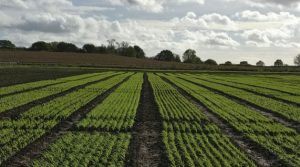Nuffield Farming Scholarship Trust
Tuesday 5th December 2017 in Uncategorised

By Harry Day, Associate at Reading Agricultural Consultants
Harry Day attended the Nuffield Farming Scholarship Trust annual conference in Bristol on 24th November.
The event was an opportunity to hear the 2016 cohort of Scholars present to the conference on subjects that they studied, ranging from Robbie Moore on perceived failings of short-term land occupation, specifically conservation of soils, to Rob Mercer’s presentation on the potential for farmers to address UK food poverty.
Scholar Ben-Taylor Davies discussed herbicide resistance in blackgrass, arguably the most important weed in UK arable production. He offered a managing resistance strategy: the artificial selection of plants using a 15-year block rotation, consisting of three five-year rotational blocks that switch between management tactics. This results in the enhanced selection of blackgrass plants which favour varying germination timings, disturbance and cultivation regimes. This method selects plants due to their individual traits, before they are controlled using an alternative strategy.
Ben also recommended that soil type be expressed in terms of percentage clay content, to aid an understanding of soil characteristics. This is important as the clay soil fraction affects drainage and thus blackgrass competition.
Herbicide resistance is especially topical, especially as possibly the most important herbicide glyphosate in the farmers armoury nearly failed to be reapproved by the EU. There is no glyphosate resistance in the UK to blackgrass. The herbicide was recently given a five-year approval, despite a typical approval being for 15 years.

